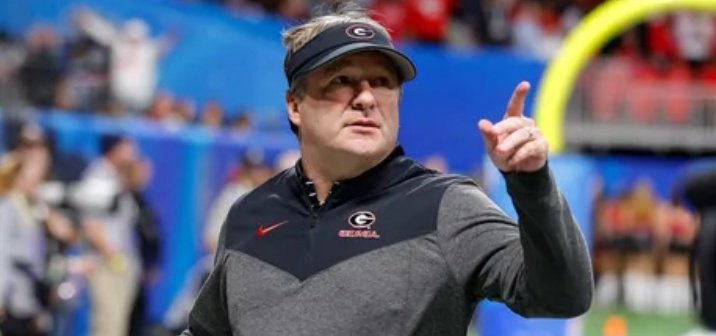Name, Image and Likeness (NIL) has changed college football and college atheltics in general forever.
In a landmark decision poised to redefine collegiate athletics, Georgia Governor Brian Kemp signed an executive order on September 17, 2024, permitting state universities to directly compensate student-athletes for the use of their Name, Image, and Likeness (NIL). This bold move positions Georgia at the forefront of the evolving landscape of college sports, challenging longstanding NCAA regulations and setting a precedent for other states to follow.
The Executive Order: A New Era for Athlete Compensation
Governor Kemp’s executive order explicitly prohibits the NCAA or any athletic conference from imposing penalties on Georgia institutions that choose to compensate their athletes for NIL usage. This directive is effective immediately, granting schools the autonomy to establish compensation structures without fear of retribution. The order will remain in effect until either a federal law is enacted regulating athlete compensation or the pending House v. NCAA settlement is finalized.
The impetus for this executive action stems from the ongoing legal battles challenging the NCAA’s traditional stance on amateurism. The House v. NCAA settlement, if approved, would allow schools to share between $20 to $23 million annually in revenue with athletes and require the NCAA and its conferences to pay $2.8 billion in back damages to former athletes. However, with the settlement still pending, Georgia’s proactive approach ensures that its institutions remain competitive in recruiting and retaining top talent.
Reactions from Georgia’s Academic Institutions
The state’s leading universities have expressed strong support for the executive order. In a joint statement, Georgia Athletic Director Josh Brooks and Georgia Tech Athletic Director J Batt conveyed their gratitude:
> “We extend our sincere gratitude to Governor Brian Kemp for his leadership today. In the absence of nationwide name, image, and likeness regulation, this executive order helps our institutions with the necessary tools to fully support our student-athletes in their pursuit of NIL opportunities, remain competitive with our peers, and secure the long-term success of our athletics programs.”
This sentiment underscores the universities’ commitment to adapting to the changing dynamics of college athletics and providing robust support to their student-athletes.
Implications for Georgia Football
For the Georgia Bulldogs, a powerhouse in college football, this development carries significant implications. The ability to offer direct NIL compensation enhances the program’s attractiveness to elite recruits, potentially tipping the scales in favor of Georgia when competing against other top-tier programs. This advantage is particularly crucial in the Southeastern Conference (SEC), where the competition for premier talent is fierce.
Head Coach Kirby Smart acknowledged the importance of this development, stating:
> “Very appreciative in Gov. Kemp and his staff for allowing us to be competitive and putting us on a level playing field and continuing to support our student-athletes.”
This proactive stance ensures that Georgia remains a formidable contender in the national landscape of college football.
Broader Context and National Impact
Georgia’s decision aligns with similar actions taken by other states. In July 2024, Virginia enacted a law permitting its schools to directly compensate athletes for their NIL, providing them with legal protection against potential NCAA sanctions. These state-level initiatives reflect a growing trend of challenging the NCAA’s traditional policies and advocating for athlete compensation rights.
The executive order also adds pressure on the NCAA to expedite the finalization of the House v. NCAA settlement and to establish a cohesive, nationwide policy regarding athlete compensation. As more states implement their own regulations, the existing patchwork of rules could lead to disparities and inconsistencies across collegiate athletics, underscoring the need for a unified approach.
Looking Ahead
While the executive order provides immediate benefits, its long-term impact will depend on subsequent legal developments and potential federal legislation. The evolving landscape of NIL regulations signifies a transformative period in college athletics, with Georgia positioning itself as a leader in championing athlete rights and institutional autonomy.
As the situation progresses, stakeholders—including universities, athletes, and governing bodies—will need to navigate the complexities of this new paradigm. Georgia’s decisive action serves as a catalyst for broader discussions and potential reforms in the realm of collegiate sports.



